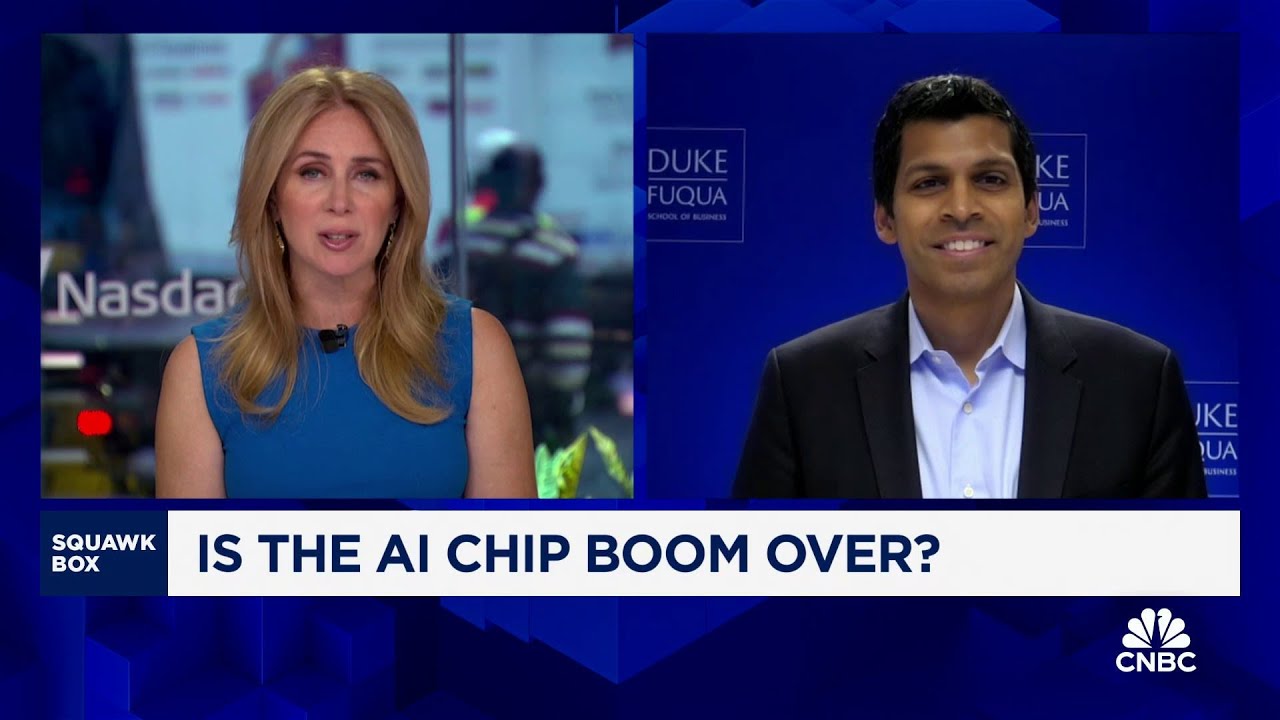Ronnie Chatterji, former White House Chips Coordinator, highlighted the strong demand for AI infrastructure despite challenges faced by companies like Intel, which is struggling to meet AI chip demand and has announced layoffs. He expressed optimism about the U.S. semiconductor industry, noting that investments from the Chips Act are diversifying risk and reducing reliance on foreign manufacturing, particularly in Taiwan.
Fmr. WH CHIPS Coordinator Ronnie Chatterji: See a lot of tailwind in AI infrastructure going forward
In a recent discussion, Ronnie Chatterji, the former White House Chips Coordinator and current professor at Duke University, provided insights into the state of the semiconductor industry, particularly focusing on the demand for AI infrastructure. Despite NVIDIA’s shares dropping in premarket trading, Chatterji emphasized that there is still strong demand for AI infrastructure, with hyperscalers investing heavily in capital expenditures to support AI technologies. He noted that companies in this sector are more concerned about underinvesting rather than overinvesting, indicating a robust outlook for AI moving forward.
Chatterji also addressed the challenges faced by Intel, which has struggled to keep pace with the demand for AI chips. Following disappointing earnings, Intel’s stock saw a significant drop, and the company announced layoffs of 15% of its workforce. Chatterji explained that while Intel received substantial government funding, the money has not yet been allocated and is contingent upon meeting specific milestones. He highlighted that Intel is working to ramp up production of AI chips, but this effort has impacted their margins.
When asked about the potential consequences if Intel were to fail, Chatterji refrained from speculating, noting that government policy should not rely on the success of a single company. He pointed out that the Chips Act, which was passed two years ago, has led to investments from multiple companies in advanced technologies across the U.S., thereby diversifying the risk for taxpayers. This approach aims to ensure that the U.S. remains competitive in the semiconductor industry without being overly dependent on any one entity.
Chatterji discussed the progress of the Chips Act, stating that preliminary allocations of around $30 billion have been announced, but these funds are contingent on companies meeting their construction and technology milestones. He expressed optimism about the U.S. semiconductor landscape, suggesting that despite challenges, the country is on track to achieve its goals. He contrasted this with China’s efforts, which have not yielded the expected advancements in technology.
Finally, Chatterji addressed concerns about U.S. dependence on Taiwan for chip manufacturing, asserting that while the flow of funding will begin soon, building the necessary fabrication facilities will take time. He emphasized that the investments being made by companies like TSMC and Samsung in the U.S. signal a positive shift towards reducing reliance on foreign manufacturing, ultimately enhancing national security and ensuring a more resilient semiconductor supply chain.
